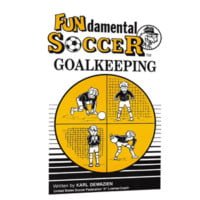Five Reasons Why a Routine Leads to Success
Championing to the Use of a Routine
By Elaine Comeau
One of my theories is that “a happy child makes a happy parent”. As a parent and a teacher, I know it is important for our children to feel confident, safe, and to succeed in their endeavors. Are you hoping for easier bedtimes or homework times? Trying to get your child more organized, or wanting them to learn responsibility?
Having a routine is key and the best way to do it is one day at a time. Here are five reasons why routine and organization are key ingredients for your child’s success!
- Improves Co-operation: When we hear parents say to their toddler or teenager, “Okay, Billy, in five minutes we are going to grandma’s”, it is said not because the child actually does a mental count-down from 300 seconds. It is said because parents are trying to mentally prepare their child for a change in event, or event transition. Studies show that children as young as preschool age benefit from having a visual daily routine. Having a visual daily routine helps them co-operate better in event transitions, such as going from breakfast to a play date or from school to the doctors. When a child can see pictures or words of what their “shape of the day” looks like they are more willing to go to the next event because they have been given the “head’s up”. Many classroom teachers use a visual daily routine in the front of their classroom. It helps their students mentally prepare for what their day will look like and makes transitions throughout the day smoother and quicker. How else can you efficiently move 20-30 children from one activity to the next!
- Eliminates Child-Anxiety: As parents, we have all seen or experienced situations where a child feels nervous or anxious about going somewhere or doing something. When a child knows what is going to happen next they are able to prepare mentally and physically for the change in task or location. Children at any age will ask a parent, “What are we doing today?” or “Where are we going now?” Depending on your level of patience, you might not mind hearing those questions every 5 minutes. But for the rest of us, a quick and easy solution to help ease your child’s inquisitiveness and even anxiety are to show him a visual routine of what the day looks like. Children with special needs or learning disabilities especially benefit from the security of knowing what is going to happen next. If you are in serious need of eliminating tantrums and breakdowns during event transitions, consider using a visual daily routine. As a teacher, I know that my students feel safe and secure in our classroom because they know our routine. Our visual daily routine eliminates the unknown and has created a safe environment for learning and success!
- Develops Self-Discipline and Responsibility: Following a regular routine may seem boring to an adult but for a child, it is the foundation of success! Whether it is creating simple steps for bedtime, or after-school homework and chores time, your child will benefit from following a routine. When the routine is followed step by step, again and again, that child is learning excellent habits of self-discipline and responsibility. They will learn the positive effects of accomplishment and achievement. Always make sure to give lots of praise for their wonderful efforts!
- Builds Confidence and Independence: No matter the age of our child, she gets extreme exhilaration when we take notice of even the smallest of her successes. Being able to follow even a two-step routine should be celebrated because it will let your child know that he is on the right track and encourage him to stay on track. We cannot take for granted that we too at one point learned how to do something successfully one step at a time. Soon, with repetition and praise, the child will gain the confidence and independence to do the desired routines with complete success!
- Makes a happier child: Starting off the day reviewing a visual daily routine gives a child the sense of security and predictability that will make her automatically feel more confident and cooperative. She feels in control of her day which results in a happier child. A happy child makes a happy parent!








